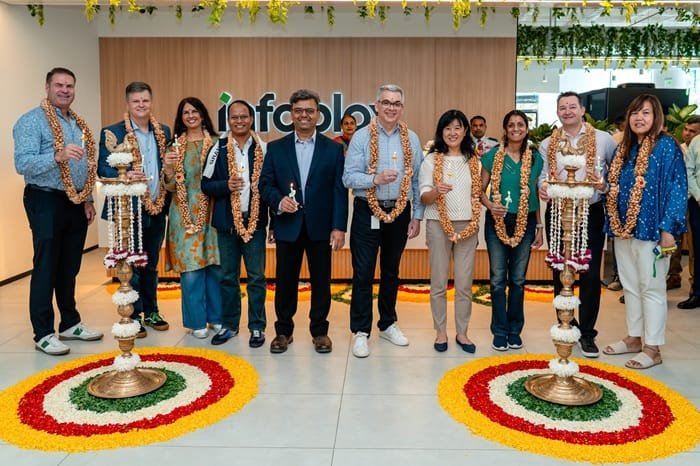Taneja builds global footprint for Mumbai-based startup
A Mumbai-based startup, MatchLog Solutions, says its newl opened Singapore office will offer four platforms to the fast-growing trade across South East Asia where an estimated 75 million twenty-foot equivalent unit (TEU) containers are handled annually by the regional shipping and cargo transportation sector https://fieo.org/.
“For our new office, we are building a team of experts in regional shipping logistics and trade intelligence to strengthen our operations as part of our global expansion,” said Manish Singh, Co-Founder and Region Head, South East Asia, MatchLog, a pioneer in sustainable logistics and supply chain optimization.
“We are already working with Maersk, Hapag-Lloyd, and PIL, among others in India, and will be extending our four platform services to these leading maritime groups from the city-state, rated among the top maritime and trade handling transshipment hubs globally,” Press Trust of India quoted Manish Singh as saying http://commerce.gov.in.
Singapore, with 14.18 million TEU containers handled by PSA Singapore in the first four months of this year, is the starting point for MatchLog’s four platforms, which have partnered with Maersk, Hapag-Lloyd, and Pacific International Lines (PIL), among others in India, said Singh, a software stalwart with insight into maritime trade flows.
In 2024, PSA Singapore, one of the largest container ports in the world, handled a record 40.9 million TEUs. The Singapore port reported a 6.1 per cent throughput increase year-on-year, totalling 14.18 million TEU containers in the first four months.
MatchLog has been enjoying a 20 per cent month-on-month growth for the last six months in India, where ports handled 18 million TEU containers a year https://www.nseindia.com/.
“With the Indian economy growing at a fast pace, our platforms are fully occupied by our clients. As such, it is time to venture into the South East Asian markets and build our global footprint,” added Dhruv Taneja, Founder & Global CEO, MatchLog, which was formed in 2019 to offer cargo handling efficiency and productivity to the shipping industry as well as to shipping agents and cargo management companies http://startupindia.gov.in.
India’s merchandise exports recorded a positive growth of 6.7% in August 2025, reaching US$35.1 billion, compared to US$32.89 billion in August 2024, according to official data from the Ministry of Commerce. Simultaneously, imports declined by 10.12% to US$61.59 billion, down from US$68.53 billion in the corresponding period last year https://www.bseindia.com/.
The four platforms are for reusing containers, increasing container use, digitally tracking containers, and easing the execution of transportation plans for cargo movements from traders through to shipping networks across the globe http://dpiit.gov.in.
“The MatchLog platforms have gained the right place in the Indian merchandise trade sector, and we expect to establish a similar market position in the coming year in South East Asia, given that we are already working with industry heavyweights,” said Taneja.
The digital shipping concept, initiated in India, sits well with MatchLog’s “go-to-market” strategy. “We are now in the process of building clients both at home and in major maritime centres,” underlined Taneja, a shipping and banking industry veteran https://www.meity.gov.in/.
The startup has completed two rounds of funding, backed by marquee investors providing USD4.5 million.
In 2022, MatchLog raised US$3 million from Blue Ashva Capital, Rain Matter Climate Technologies, and Capital-A. It has also raised US$1.5 million in a round led by July Ventures, Motion Ventures, and Venture Catalyst, with support from existing investors Capital-A and Blue Ashva.
MatchLog is utilising the funds to further expand and enhance its technology and infrastructure. “This is a work in progress,” added Taneja https://www.makeinindia.com/home/.
Going forward, MatchLog aims to help the global shipping industry avoid 80,000 metric tonnes of emissions and reduce freight costs by US$100 million. “Emission control and freight costs are challenges the global maritime industry is trying to manage,” he stressed. Fiinews.com










